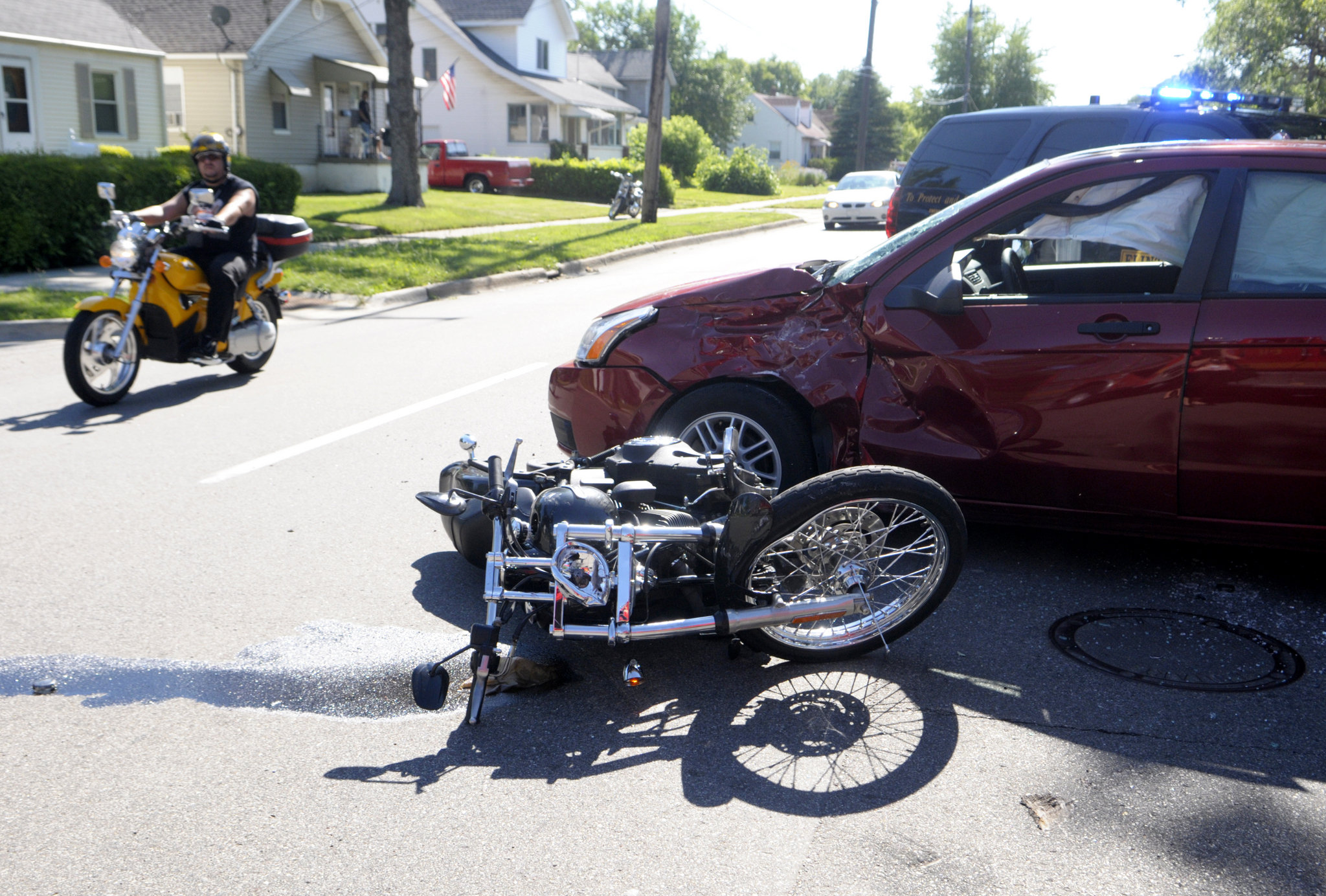Business
What Should You Do After a Motorcycle Accident?
Published
5 years agoon
By
Farhan Malik
You ride your motorcycle safely and with the utmost conscientiousness. The stakes are high for you. A motorcycle accident impacts the rider of the bike more than it does the person in the motor vehicle. The latter has some basic protection; the former does not.
Traffic rules exist for a reason: to ensure that large groups of motorists can commute from one place to another in safety. If you have been injured in an accident caused by a driver who ignored those rules, then you do have legal options. Check out more at https://www.airambulance1.com/
Riding Safely
You must do your part to be safe on the road. There are some basic actions you can take to do so. They can be roughly categorized as the dos and don’ts of riding safely, and they are as follows:
Do:
1. Inspect bike and helmet before riding
You want to identify problems with your bike or safety gear before you get on the road, not afterward. The last thing you want is to discover the problem when there is a catastrophic failure of a bike part or piece of safety equipment.
Before hitting the road, you should examine the wheels and tires of your bike. Check also the fuel level, chassis, chain, and kickstand. You should also check for cracks in your helmet. These can be so small that you will spot them only with a thorough inspection.
2. Follow traffic laws
You have more flexibility as a motorcyclist. You can get through traffic jams faster and are less constrained in the routes you take to your destination. However, you must still follow all traffic laws. You should have perfect mastery over them. This is the only way to avoid receiving a ticket or angering motor vehicle drivers. Avoiding the latter is important. You don’t want to provoke motor vehicle drivers into doing something that will put your life in danger.
3. Wear appropriate safety gear
You should never ride without the right safety gear. Not only will such equipment protect you against a collision, it will also protect you against a fall. An awkward turn, an emergency swerve to avoid hitting someone, an unseen slippery surface—any of these things can cause you to crash your bike and slide down the road. Road rash is painful to endure. Wearing the appropriate gear will protect you against it and far worse injuries.
Don’t:
1. Tailgate
You should not ride the bumper of a motor vehicle. If you need to overtake them, then do so—safely. You never know when the car ahead of you will need to stop suddenly or when you will need to do so to avoid an accident.
2. Neglect your bike
You should take your bike in for servicing regularly. This is the only way to ensure that it remains in good working condition.
3. Ride the shoulder
It is permissible in the state of California for bikes to lane split. You can drive in between cars on a highway, which is a great way to get through traffic jams. However, you cannot ride on road shoulders. This is not only illegal; it can cause serious damage to your tires, and it sure to anger frustrated motor vehicle drivers.
What to do After a Motorcycle Accident
A motorcycle accident can leave you stunned and disoriented. Once you have recovered your senses, you should take the following actions:
1. Verify your condition
If you feel a sharp pain anywhere on your body, you should lay still and wait for an ambulance to arrive. If you can move, then you should do so and check for bleeding.
2. Call emergency services
You should then call 911. You should apprise the operator of your physical condition and that of others involved in the accident.
3. Exchange information
You should get the name, phone number, and insurance details from the person with whom you collided. Do not admit fault for the accident. You should also avoid blaming them for what happened. The aim should be to keep tempers cool and the situation calm.
4. Take pictures
You will probably have your phone with you. Use it to take pictures of the damage done to your bike. You should also snap photos of the accident scene.
5. Speak to witnesses
You should speak to people who witnessed the accident, especially the ones who seem eager to talk. You should get their personal contact information for later use.
6. Go to the hospital
Even if you are conscious, mobile, and without pain, you should go to the emergency room. You must be examined by a trained physician. They will have the expertise and equipment to spot injuries that you can neither see nor feel. If you have visible injuries, photograph them before they are treated.
7. Document everything
You should get a copy of the physician’s examination. You should also write down everything told to you by the doctor. Jot down your own memories of the accident and how it happened.
8. Contact a lawyer
As you are recovering, you should start thinking about your future. Your first move should be to contact a highly rated motorcycle injury lawyer. You want to do this even before you report the accident to your insurance company. Your lawyer will advise you of your rights as a policy holder.
Why You Need a Lawyer
You need an advocate in situations like this. You need someone who will be exclusively for your interests. During the first consultation, your motorcycle injury lawyer will ask you to recall the events that led to the accident. You should be as forthcoming as you can about the facts. Use any notes you may have taken to keep them straight. Your recollection of what happened will be the basis for the legal strategy followed by your attorney.
If the motor vehicle driver is found to be the cause of the accident, then their insurance company will need to pay. The driver’s insurance company may offer you a low-dollar settlement. You should not accept it until your lawyer has had time to see and evaluate it. Indeed, you should have no direct dealings with such officials. Leave all communication to your motorcycle personal injury attorney. This is the best way to avoid saying or doing anything that will weaken your case.
If the money offered to you covers all your bills and gives reasonable compensation for the pain and suffering you’ve experienced, your motorcycle personal injury attorney may advise you to accept it. If you were badly injured and the sum does not meet your financial needs, your attorney will press the insurance company for more. If they do not yield, then you will need to sue them.
What Your Lawyer Will Do
West Coast trial lawyers have the experience and expertise to get people like you the money they deserve. A motorcycle accident attorney will re-interview the people witnessed the accident, which may lead to the discovery of new evidence that helps you. Your motorcycle accident attorney will also get statements and testimony from forensic scientists and medical experts, all of which can bolster your case for a larger settlement.
If you have been in a motorcycle accident, then you need legal representation. You should contact West Coast trial lawyers to discuss your options.
You may like

Is Fmovies Safe? What You Need to Know Before Streaming

Dominating the Digital Pitch: A Step-by-Step Guide to Creating Futbol Libre Content

Conquering CricHD: A Comprehensive Guide to Cricket Streaming

What You Need to Know About Police Brutality?

12 Sites to Watch Free Online TV Shows with Complete Episodes in 2024


